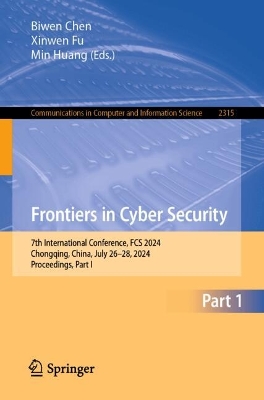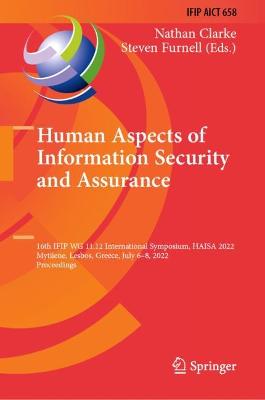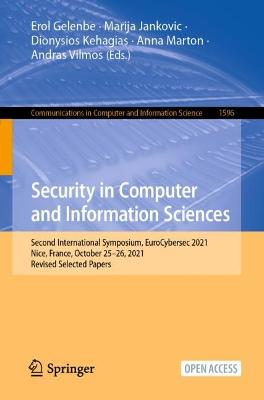Human Aspects of Information Security and Assurance
 portes grátis
portes grátis
Human Aspects of Information Security and Assurance
18th IFIP WG 11.12 International Symposium, HAISA 2024, Skoevde, Sweden, July 9-11, 2024, Proceedings, Part II
Clarke, Nathan; Furnell, Steven
Springer International Publishing AG
01/2025
230
Dura
9783031725623
Pré-lançamento - envio 15 a 20 dias após a sua edição
.- The Influence of Human Factors on Adaptive Social Media Cyber-security Training and Education.
.- Towards an Active Learning Approach for the Design of a Secure Programming Course using Constructive Alignment.
.- Investigating the use of indigenous languages within South African schools to teach cyber-safety awareness.
.- Useful but for someone else - an explorative study on cybersecurity training acceptance.
.- Laying the foundation for digital citizenship: The integration of 'the CyberSmart Squad' into pre-school curriculum.
.- Gamification in Cybersecurity Training: High-level Properties of Cybersecurity Games.
.- A Framework for Matching Distinct Personality Types with Information Security Awareness Methods.
.- "Probably put some sort of fear in": Investigating the role of Heuristics in Cyber Awareness Messaging for Small to Medium Sized Enterprises.
.- Improving the Human Firewall: Exploring the Factors that Influence Cyber-Security Incident Reporting.
.- Harnessing the Right Talent for SETA Programs: Cybersecurity Roles and Competencies that Make a Difference.
.- Privacy.
.- Privacy Policies on Websites: A Case Study in the Financial Industry in South Africa.
.- Analysing Websites Privacy Policies: A Study of E-commerce Websites in South Africa.
.- Security and Privacy Perspectives on Using ChatGPT at the Workplace: An Interview Study.
.- A Holistic Approach to Developing Intervention Strategies Against Digital Piracy.
.- Data After Death: Australian User Preferences and Future Solutions to Protect Posthumous User Data.
.- The Influence of Human Factors on Adaptive Social Media Cyber-security Training and Education.
.- Towards an Active Learning Approach for the Design of a Secure Programming Course using Constructive Alignment.
.- Investigating the use of indigenous languages within South African schools to teach cyber-safety awareness.
.- Useful but for someone else - an explorative study on cybersecurity training acceptance.
.- Laying the foundation for digital citizenship: The integration of 'the CyberSmart Squad' into pre-school curriculum.
.- Gamification in Cybersecurity Training: High-level Properties of Cybersecurity Games.
.- A Framework for Matching Distinct Personality Types with Information Security Awareness Methods.
.- "Probably put some sort of fear in": Investigating the role of Heuristics in Cyber Awareness Messaging for Small to Medium Sized Enterprises.
.- Improving the Human Firewall: Exploring the Factors that Influence Cyber-Security Incident Reporting.
.- Harnessing the Right Talent for SETA Programs: Cybersecurity Roles and Competencies that Make a Difference.
.- Privacy.
.- Privacy Policies on Websites: A Case Study in the Financial Industry in South Africa.
.- Analysing Websites Privacy Policies: A Study of E-commerce Websites in South Africa.
.- Security and Privacy Perspectives on Using ChatGPT at the Workplace: An Interview Study.
.- A Holistic Approach to Developing Intervention Strategies Against Digital Piracy.
.- Data After Death: Australian User Preferences and Future Solutions to Protect Posthumous User Data.







